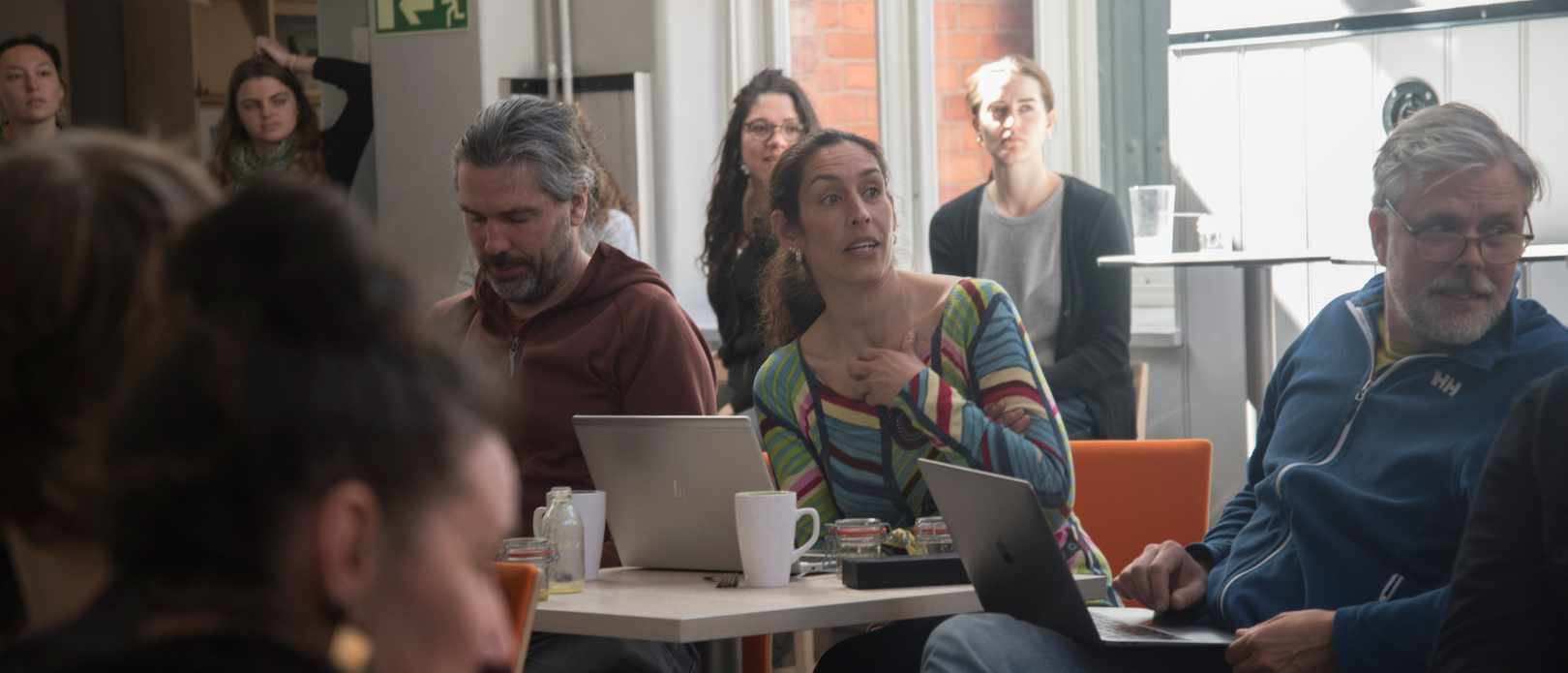Transdisciplinary education

Photo: E-L. Jansson/Azote Images
Bildtext får vara max två rader text. Hela texten ska högerjusteras om den bara ska innehålla fotobyline! Photo: B. Christensen/Azote
We offer courses and programmes to those acting at the grassroots, in board rooms, in the public service, or for those who are just growing curious about sustainability, resilience, and equity
In addition to our Masters’ and PhD education we offer a diverse range of transdisciplinary programming to support and strengthen capacities to navigate complex system dynamics and challenges.
Across the courses and programmes, we test a variety of pedagogical approaches and methods, which also continues to inform our science.
Our aim is to support a plurality of lifelong learners and “changemakers” to apply scientific insights to real-time issues while weaving these insights with multiple ways of knowing and context-sensitive approaches.
Courses and programmes
The executive programme in resilience thinking is tailor-made for business leaders to take a deep dive into the megatrends shaping our planet and global economy. The programme clarifies what these interconnected changes mean for your company, and highlights business opportunities that also bring social and environmental benefits. Read more
This programme is designed to strengthen innovation by, and for, public and civil sector workers in the Southern African Development Community. Read more
Planetary Boundaries Massive Open Online Course MOOC
This course offers an overview of the rapidly evolving trends in global environmental change and the responses aimed at slowing or eliminating these changes. Learn how unsustainable patterns of production, consumption and population growth have challenge planetary resilience, all in support of human activity – and how our societies can develop in a just and safe way within the planet’s boundaries. Read more
Transforming Development Massive Open Online Course MOOC
This course offers insight into how concepts from resilience may help us rethink and transform current development practice. It includes case studies and examples from practitioners who are working with resilience concepts in diverse contexts around the world. The course is supported by strong scientific evidence and committed to being a platform to bring together and spark collaboration between individuals and organizations from around the world who are driven to transform development. Read more
Världens Eko is an orientation course on sustainable development and global change. The course is taught in Swedish. Read more
Post-doctoral Academy for Transformational Leadership
This programme provides an intensive high-end training to broaden the research competencies of postdocs and promote their qualifications towards transdisciplinary leadership. It also offers seed funding (e.g. for stakeholder meetings or proposal writing activities) to small groups of participants, who plan to initiate research collaborations. Furthermore, an active network of current and former participants of the program will be established. Read more
Resilience Assessment and Methods short course
This online course will provide an introduction to resilience assessments and related social-ecological systems methods. The five-day immersive course will be asynchronous with two online sessions daily coupled with offline readings, presentations, and a group project. Read more
Previous course offerings
BALTICLEAD (formerly known as LEAP, then LEAD) (2014-2020) was a leadership programme designed for system entrepreneurship and transformations to sustainability in the Baltic Sea region and Eastern Europe, offered in partnership with Planethon and Swedish Institute. The programme aimed to help participants develop new ways of thinking and capacities to drive large-scale systemic change in an ever-evolving, complex and uncertain world. Through participation, lectures and course activities, participants gain actionable knowledge from some of the most insightful people in sustainability science, business, social leadership, social innovation, self-development, public narrative, exponential technologies, entrepreneurship and impact investment.
Transforming Change (2018-2020) gathered cohorts, drawn from a diversity of sectors and organizations in Africa, who were attempting to deeply transform the paradigm and practices of change, reimagining the practices, systems and institutions of our world to better support regenerative development and thriving social-ecological systems. This programme was developed in partnership with the Centre for Systems in Transition at Stellenbosch University and the University of Cape Town Graduate School of Business, and continues to inform our work today with an active Alumni network.
Rockefeller Global Fellowship on Social Innovation (2013-2016) one of our early global offerings, this Fellowship programme convened changemakers from around the world who were seeking to transform systems towards sustainability and justice. Over 10 months, each cohort engaged in learning about the diffuse mindsets, conceptual frameworks, and practical tools that could enable well-positioned social change agents to become more effective system entrepreneurs and left with a strong global network. The program was designed and delivered in partnership with the Waterloo Institute on Social Innovation and Resilience, the University of Cape Town Graduate School of Business, and the University of Victoria Centre for Global Studies. The program drew on international experts in social innovation, complexity, and social-ecological resilience as well as on local experts confronting intractable social and environmental challenges in the host cities of each module. Although the program is now complete, the partnerships and alumni network continue to offer rich learning experiences.






